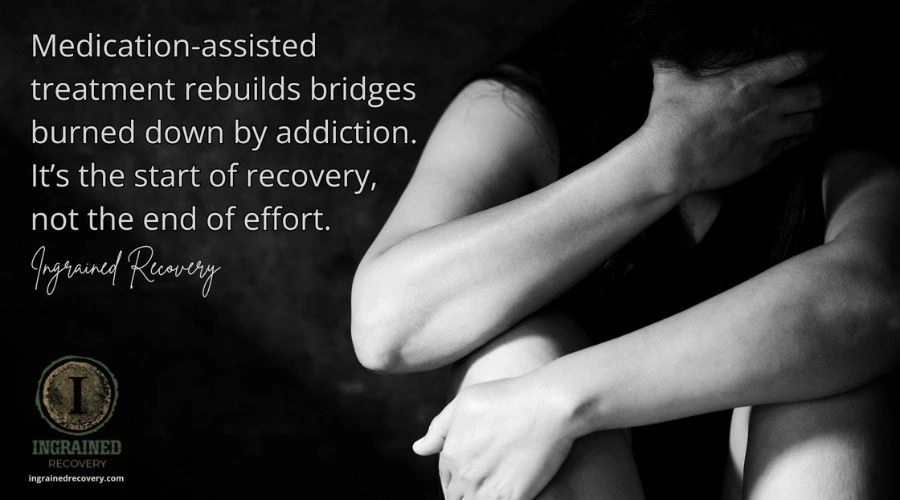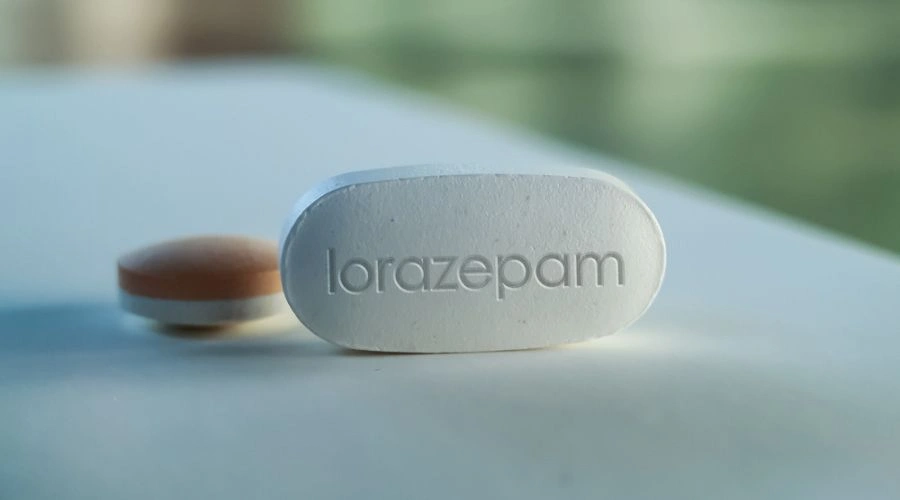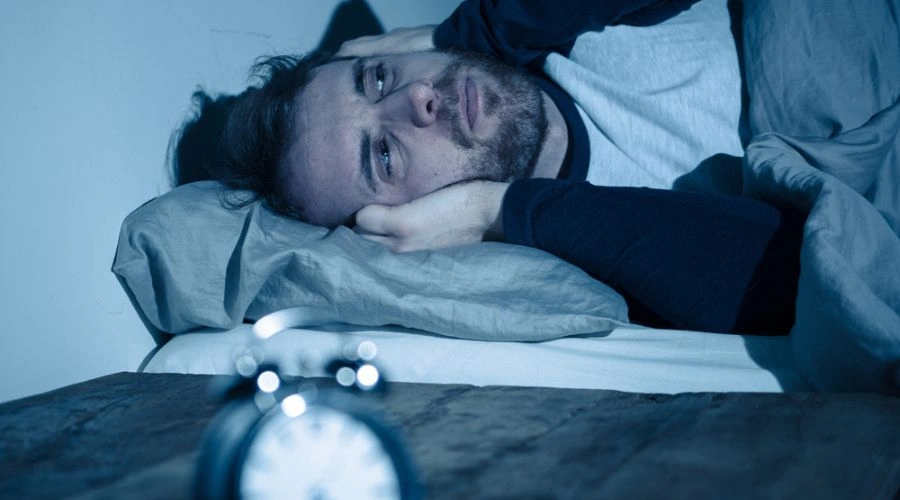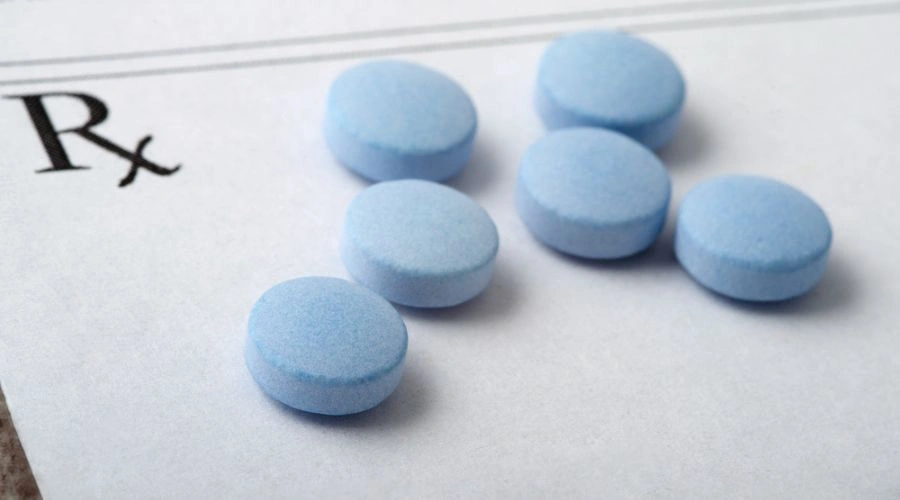How to Safely Manage Alcohol Withdrawal Symptoms
How can Klonopin help with alcohol withdrawal symptoms? Klonopin is considered an off-label treatment for alcohol addiction but is FDA-approved for panic and anxiety disorders and some seizure disorders. Addiction treatment specialists may cautiously – and rarely – choose this drug as a treatment to avoid alcohol withdrawal syndrome due to the inherent Klonopin addiction risks.
The Ingrained Recovery addiction specialists full well that withdrawal symptoms can be intense or life-threatening during alcohol withdrawal, especially seizures after long-term alcohol abuse. However, any use of Klonopin must be made with extreme care, as it, too, can lead to physical dependence.
If you or a loved one needs alcohol detox and you want to learn more about Klonopin or other benzodiazepine drugs that can have a calming effect during recovery, you’re in the right place. We’ll cover a set of FAQs, taking a closer look at anti-anxiety medications and alcohol detox.
Get Proven Detox and Rehab Options
Find Help At Ingrained Recovery
FAQs About Benzodiazepine Dependence for Treting Alcohol Withdrawal
What Is Klonopin?
Klonopin, or clonazepam, is a prescription benzodiazepine drug. It has a calming effect on the central nervous system. That makes it a viable prescription medication for people who struggle with severe attacks and some seizures as part of a medication-assisted treatment plan or alcohol abuse. While it can be very beneficial, it is an addictive drug to be taken under close monitoring by an addiction treatment specialist.
How Do Klonopin and Other Benzodiazepines Work?
Taking clonazepam (Klonopin) enhances the brain’s GABA function to calm overactive brain activity quickly. The drug binds to the GABA receptors in the brain, helping it feel relaxed. That sedative effect lowers muscle tension, anxiety, and seizure risks, which are sometimes a concern during alcohol withdrawal.
What Leads to Klonopin Addiction?

Like other addictive substances, clonazepam carries a high risk of addiction when used in ways other than its prescribed. The calm feeling clonazepam offers makes it a drug of choice for many who seek to self-medicate to overcome painful mental health issues. Repeated improper usage of Klonopin eventually leads to building tolerance, increased dosages, or taking it more often to achieve the same sense of peace.
What’s Alcohol Withdrawal Syndrome?
AWS occurs when a person with alcohol dependence, especially someone who has been drinking heavily for a long time, stops drinking alcohol suddenly. Quitting cold turkey can trigger any responses from mild nausea or headaches to severe withdrawal symptoms like seizures or delirium tremens.
Here’s the tricky part. It’s a challenging process (if not an impossible one!) to determine what symptoms one might have after the last dose of their drug of choice, including the last drink of alcohol.
Physical Symptoms of AWS
The common symptoms that impact most patients’ physical health start to appear between 6 and 12 hours after the person’s last drink; if more severe symptoms emerge, they’ll usually start at around 24 to 72 hours after drinking. You or your loved one may expect some of these:
- Tremors, shaky hands
- Sweating excessively
- Nausea
- Increased heart rate
- Higher blood pressure
- Difficulty sleeping
- Insomnia
- Delirium (a severe side effect)
- Seizures (dangerous side effect)
Psychological Symptoms of AWS
These are the more common psychological side effects of alcohol withdrawal symptoms:
- Anxiety
- Mood swings
- Depression
- Irritability
- Confusion
- Hallucinations (can be dangerous, including thoughts of self-harm)
Both alcohol withdrawal symptom types – physical and psychological reach – peak intensity at around 24 to 48 hours after alcohol consumption. They begin to fade within a few days but will likely linger in a milder form for several weeks. Professional support is the key to success during this challenging time.
What Other Drugs Help in Treating Alcohol Withdrawal Symptoms?

Several other prescription medications are preferred over Clonazepam by most addiction treatment specialists for calming the GABA receptors and to help recovering addicts avoid the most serious withdrawal symptoms:
- Diazepam
- Lorazepam
- Chlordiazepoxide
These are also benzodiazepines. The Substance Abuse and Mental Health Services Administration agrees that while these medications can be helpful at managing withdrawal symptoms, they also caution the following:
Benzodiazepines should be prescribed with extra caution to some patients if managed by dispensing or prescribing a very small number of doses and more frequent monitoring, according to SAMHSA.
Is Clonazepam Used to Treat Other Substance Abuse?
Yes, but not often. It’s sometimes considered a less harmful alternative that can taper clients off of opioid drugs. However, it’s not recommended for use over long periods of time and requires careful oversight by a drug addiction treatment specialist.
Can Detox from Alcohol with Klonopin Be Outpatient Treatment?
Most often, clients who receive Klonopin require it for severe or life-threatening risk factors. It usually means the client receives inpatient, medically-supervised detoxification to manage those risks and monitor the person’s overall health. Detox at home or on an outpatient basis is not as safe as an addiction treatment center when taking this medication.
What Are the Side Effects of Benzodiazepine Drugs?

Benzodiazepines are not without their own risk factors. Some possible withdrawal symptoms are:
- Drowsiness
- Dizziness
- Insomnia
- Confusion
- Impaired coordination
- Anxiety
- Depression
It can take a week or longer for the central nervous system to recover after clonazepam withdrawal.
How Does Someone Stop Taking Klonopin at the End of Alcohol Treatment?
Because of the withdrawal effects of clonazepam, a physician tapers the client off the drug gradually. At this point, the client is free of both alcohol and clonazepam and set up for a successful recovery.
Are Allergic Reactions Common with Benzodiazepine Drug Use?
Allergies to clonazepam are rare. But, yes, they can occur. They range from mild to dangerous and may include a red to purplish rash, swelling, skin itchiness or irritation, or difficulty breathing. These require medical attention.
How Can I Prevent Relapse After Completing Addiction Treatment?

As you become clear of the most severe withdrawal symptoms, you’ll start addressing your addiction with specially trained counselors and therapists. They’ll help you resolve the underlying factors that have contributed to the addiction and help you learn new coping tools to manage them. Ingrained uses a variety of evidence-based therapies, including individual and group psychotherapy, behavioral health services, and even equine therapy.
Once you leave the treatment facility, you will be substance-free and equipped with an aftercare plan that helps you avoid future addiction issues, along with an action plan to bounce back if you do make a mistake and have a slip-up.
Can I Use my Health Insurance to Pay for Medical Detox?
Yes! Health insurance plans cover medically-assisted detoxification and medication-assisted treatment using prescription medication like clonazepam. Coverage details are often misleading and confusing. We urge you to call our admissions team instead of your insurer. We’ll coordinate your coverage, allowing you to focus all your mental energy on preparing for long-term recovery.
Up To 100% of Rehab Covered By Insurance
Find Help At Ingrained Recovery
Get Safe, Effective Recovery from Alcohol Use Disorder at Ingrained
Ingrained Recovery offers you a beautiful setting to receive treatment for an alcohol addiction. We’ll keep you safe from the most harmful symptoms throughout recovery and provide medication management to ensure you don’t experience unnecessary emotional or physical pain, especially in the first weeks of therapy.
We can often accommodate immediate admissions for anyone who needs help urgently. There’s no need to wait another day to start getting well. With just a single call to our treatment center, you can be on your way to a drug and alcohol-free new life.

